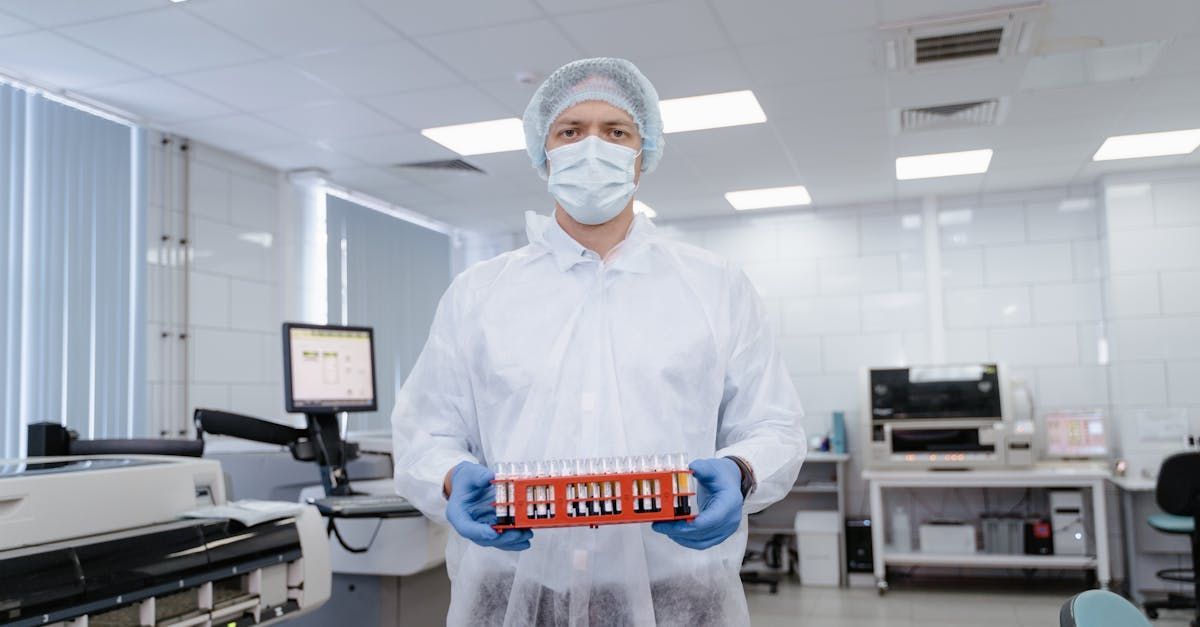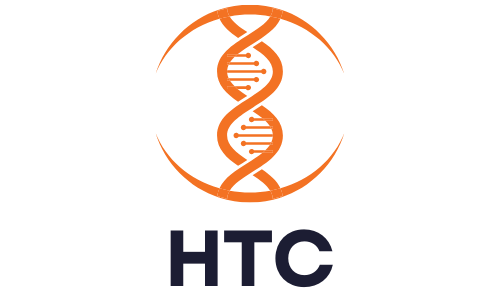HealthTech Solutions for Diabetes Management
HealthTech Solutions for Diabetes Management
Diabetes, a chronic condition characterized by high blood sugar levels, affects millions of people worldwide. Its management requires continuous monitoring, lifestyle adjustments, and medical interventions to prevent complications such as heart disease, kidney failure, and neuropathy. With the rise of HealthTech solutions, managing diabetes has become more efficient and personalized. This blog explores the role of HealthTech in diabetes management, highlighting its benefits, challenges, and future trends.
HealthTech refers to the application of technology to improve health and healthcare services. In diabetes management, HealthTech encompasses a range of tools and technologies designed to help patients monitor their blood sugar levels, manage their diet, and adhere to their treatment plans. These technologies range from mobile applications to wearable devices and advanced AI algorithms.
Key Components and Technologies
- Mobile Apps: Diabetes management apps help patients track their blood sugar levels, monitor their diet, and receive medication reminders. These apps often include features for logging physical activity and sleep patterns, providing a comprehensive view of the patient's health. Examples include MySugr, Glucose Buddy, and Diabetes.
- Wearables: Devices such as continuous glucose monitors (CGMs) and smartwatches allow for real-time monitoring of blood sugar levels. These wearables can sync with mobile apps, providing patients and healthcare providers with valuable data. Leading devices include the Dexcom G6 and the FreeStyle Libre.
- Artificial Intelligence (AI): AI algorithms analyze large datasets to provide personalized recommendations for diabetes management. AI can predict blood sugar trends, suggest dietary adjustments, and optimize insulin delivery. Notable AI-driven platforms include IBM Watson Health and Google DeepMind.
Examples of HealthTech Applications
- CGM Systems: Devices like the Dexcom G6 and the FreeStyle Libre provide continuous glucose monitoring, alerting patients to high or low blood sugar levels in real-time.
- Insulin Pumps: Advanced insulin pumps, such as those by Medtronic and Tandem Diabetes Care, automate insulin delivery based on CGM readings, reducing the need for manual insulin injections.
- Diabetes Management Apps: Apps like mySugr and Glucose Buddy offer comprehensive diabetes management tools, including blood sugar tracking, carbohydrate counting, and integration with wearables.
Benefits of HealthTech in Diabetes Management
HealthTech solutions enable more precise and consistent monitoring of blood sugar levels, leading to better glycemic control. Continuous monitoring helps identify patterns and triggers, allowing for timely interventions and adjustments to treatment plans. This proactive approach reduces the risk of complications and enhances overall health outcomes for diabetes patients.
Personalized care is crucial in diabetes management, as each patient’s needs and responses to treatment vary. HealthTech provides the tools necessary to tailor treatment plans to individual patients. AI-driven insights and data from wearables allow healthcare providers to develop customized strategies, improving patient adherence and satisfaction.
Efficient diabetes management reduces the need for emergency interventions and hospitalizations, resulting in significant cost savings for healthcare systems. HealthTech solutions streamline the monitoring and treatment process, optimizing resource use and reducing the burden on healthcare providers.
Notable Labs: Pioneering Precision Medicine Integration in Health Insurance
Notable Labs stands at the forefront of integrating precision medicine into healthcare, demonstrating how advanced genetic and molecular analyses can be seamlessly incorporated into standard healthcare coverage. By leveraging these advanced techniques, Notable Labs collaborates with insurers and healthcare providers to pioneer innovative approaches that ensure precision medicine treatments are accessible and affordable for all patients.
Their approach begins with the fundamental belief that every patient's genetic makeup and molecular profile hold the key to effective and personalized treatment plans. By utilizing cutting-edge technologies such as genomic sequencing and molecular diagnostics, Notable Labs can identify the unique characteristics of a patient's condition at a granular level. This information allows healthcare providers to tailor treatments that are specifically designed to target the patient's individual disease pathways, leading to more effective and less invasive treatment options.
Notable Labs' commitment to evidence-based practices is evident in their rigorous clinical trials and research initiatives. By continuously gathering and analyzing clinical data, they are able to refine and optimize their treatment protocols. This data-driven approach not only enhances the efficacy of precision medicine but also provides a robust foundation for advocating for policy changes and reimbursement models that recognize the value of these advanced treatments. Their research findings are frequently published in leading medical journals, contributing to the broader scientific community and setting benchmarks for precision medicine.
One of the critical challenges in integrating precision medicine into standard healthcare coverage is the development of reimbursement policies that reflect the value and cost-effectiveness of these treatments. Notable Labs is at the forefront of this effort, working closely with insurers to develop models that support the adoption of precision medicine. By providing comprehensive evidence of the clinical and economic benefits of personalized treatments, they are able to make a compelling case for the inclusion of these therapies in insurance plans. This ensures that patients have access to the most advanced treatments without being burdened by prohibitive costs.
In addition to their work with insurers, Notable Labs also collaborates with healthcare providers to integrate precision medicine into everyday clinical practice. This involves training and educating medical professionals on the latest advancements in genetic and molecular analysis and how to apply these insights to patient care. By equipping healthcare providers with the tools and knowledge they need, Notable Labs is helping to create a healthcare ecosystem that is fully prepared to deliver personalized treatments.
Furthermore, Notable Labs is dedicated to making precision medicine accessible to a diverse patient population. They recognize that disparities in healthcare access can prevent many patients from benefiting from advanced treatments. To address this, Notable Labs is actively involved in community outreach and education programs, ensuring that underserved populations are informed about and have access to precision medicine. They also advocate for policy changes that promote equitable access to healthcare, working towards a future where personalized treatment is available to all, regardless of socioeconomic status.
As a leader in the field, Notable Labs exemplifies the potential for precision medicine to transform patient care and improve health outcomes. Their innovative approaches are setting a new standard for integrating cutting-edge medical advancements into everyday healthcare. By making precision medicine treatments accessible and affordable, Notable Labs is paving the way for a future where personalized healthcare is the norm, ensuring that each patient receives the most effective and individualized treatment possible.
In conclusion, Notable Labs' pioneering work in integrating precision medicine into healthcare is revolutionizing the way we approach treatment and care. Their commitment to evidence-based practices, collaboration with insurers and healthcare providers, and dedication to accessibility are driving the adoption of personalized medicine. As a result, patients are receiving more effective, tailored treatments that improve their health outcomes and quality of life. Notable Labs is not only advancing the field of precision medicine but also setting a precedent for the future of healthcare, where every patient receives the care they need, when they need it, and in a manner that is tailored to their unique genetic and molecular profile.
Case Studies of Diabetes HealthTech Solutions
Case Study 1: Dexcom G6 CGM
The Dexcom G6 continuous glucose monitoring system has transformed diabetes care by providing real-time glucose readings without the need for fingerstick tests. The device alerts users to high or low blood sugar levels, helping them take immediate action. Studies have shown that using the Dexcom G6 improves glycemic control and reduces the risk of hypoglycemia, leading to better health outcomes.
Case Study 2: MySugr App
The mySugr app offers a comprehensive diabetes management platform, integrating blood sugar tracking, meal logging, and physical activity monitoring. The app's user-friendly interface and gamification features have increased patient engagement and adherence to treatment plans. Users report better glycemic control and an improved understanding of their condition.
Lessons Learned
These case studies highlight the importance of user-friendly design and real-time data in HealthTech solutions. Continuous monitoring and personalized insights are critical for effective diabetes management, leading to better health outcomes and patient satisfaction.
Challenges and Risks
HealthTech solutions must comply with regulatory standards to ensure safety and efficacy. Navigating the complex regulatory landscape can be challenging for developers, potentially delaying the launch of new products. Regulatory bodies like the FDA in the United States and the EMA in Europe have stringent requirements for medical devices and software, ensuring they meet safety and performance standards.
The sensitive nature of health data requires robust security measures to protect patient information. Ensuring data privacy and compliance with regulations such as GDPR and HIPAA is critical for maintaining patient trust and preventing breaches. HealthTech companies must implement strong encryption, access controls, and regular security audits to safeguard patient data.
While HealthTech solutions offer significant benefits, their adoption can be hindered by technological literacy and accessibility issues. Ensuring that patients of all backgrounds can access and use these technologies is essential for maximizing their impact. This includes designing user-friendly interfaces and providing comprehensive training and support for patients and healthcare providers.
To overcome these challenges, HealthTech companies must prioritize regulatory compliance and data security from the outset. Collaborating with regulatory bodies and investing in robust security infrastructure can help mitigate risks. Additionally, designing user-friendly interfaces and offering educational resources can enhance technology adoption and accessibility.
Investment Opportunities in Diabetes HealthTech
Investors should look for HealthTech companies that demonstrate innovation and a strong commitment to improving diabetes care. Companies developing advanced CGMs, AI-driven diabetes management platforms, and user-friendly mobile apps are particularly promising. Examples include Dexcom, Medtronic, and startups like Livongo and Omada Health.
When evaluating investment opportunities, consider the company's track record, regulatory compliance, and scalability potential. Assessing the competitive landscape and market demand can provide valuable insights into the company's growth prospects. Investors should also evaluate the company’s intellectual property portfolio, strategic partnerships, and clinical trial outcomes.
Investing in HealthTech for diabetes management can yield significant returns, but it's essential to adopt a balanced approach. Long-term investments in companies with strong R&D capabilities and robust pipelines can provide substantial growth. Short-term investments in market-ready products with high adoption potential can offer quicker returns. Diversifying the investment portfolio across different segments of the diabetes HealthTech market can also mitigate risks and enhance returns.
Future Trends and Innovations
The future of diabetes HealthTech lies in continuous innovation and integration. Emerging trends include the development of non-invasive glucose monitoring devices, AI-driven predictive analytics, and the integration of HealthTech with electronic health records (EHRs) for seamless data sharing. The rise of telemedicine and remote patient monitoring is also transforming diabetes care, making it more accessible and convenient for patients.
Advancements in sensor technology, AI, and machine learning will continue to drive innovation in diabetes management. These technologies will enhance the accuracy and efficiency of monitoring and treatment, leading to better health outcomes. For example, AI algorithms can analyze complex data sets to predict blood sugar fluctuations and recommend personalized interventions, while advanced sensors can provide continuous, real-time monitoring without the need for invasive procedures.
Over the next decade, we can expect to see a greater emphasis on personalized diabetes care, driven by AI and machine learning. The integration of HealthTech solutions with telemedicine platforms will enable remote monitoring and consultation, making diabetes care more accessible. Additionally, the development of non-invasive monitoring devices will reduce the burden on patients, improving adherence and quality of life. Advances in genomics and personalized medicine will also play a significant role in tailoring treatments to individual patients' genetic profiles.
Conclusion
HealthTech innovations are revolutionizing diabetes management, offering improved health outcomes, personalized care, and cost savings. Despite the challenges, the potential benefits make HealthTech a promising area for investment. By supporting and investing in HealthTech solutions, we can enhance the quality of life for diabetes patients and pave the way for a healthier future.
Investing in diabetes HealthTech requires a strategic approach, considering factors such as regulatory compliance, data security, and market demand. Long-term and short-term investment strategies can yield significant returns, particularly in companies that demonstrate innovation and a commitment to improving diabetes care.
As we look to the future, emerging trends and technological advancements will continue to shape the landscape of diabetes management. By staying informed and proactive, investors can seize the opportunities presented by this rapidly evolving field and contribute to the advancement of healthcare for diabetes patients worldwide.










